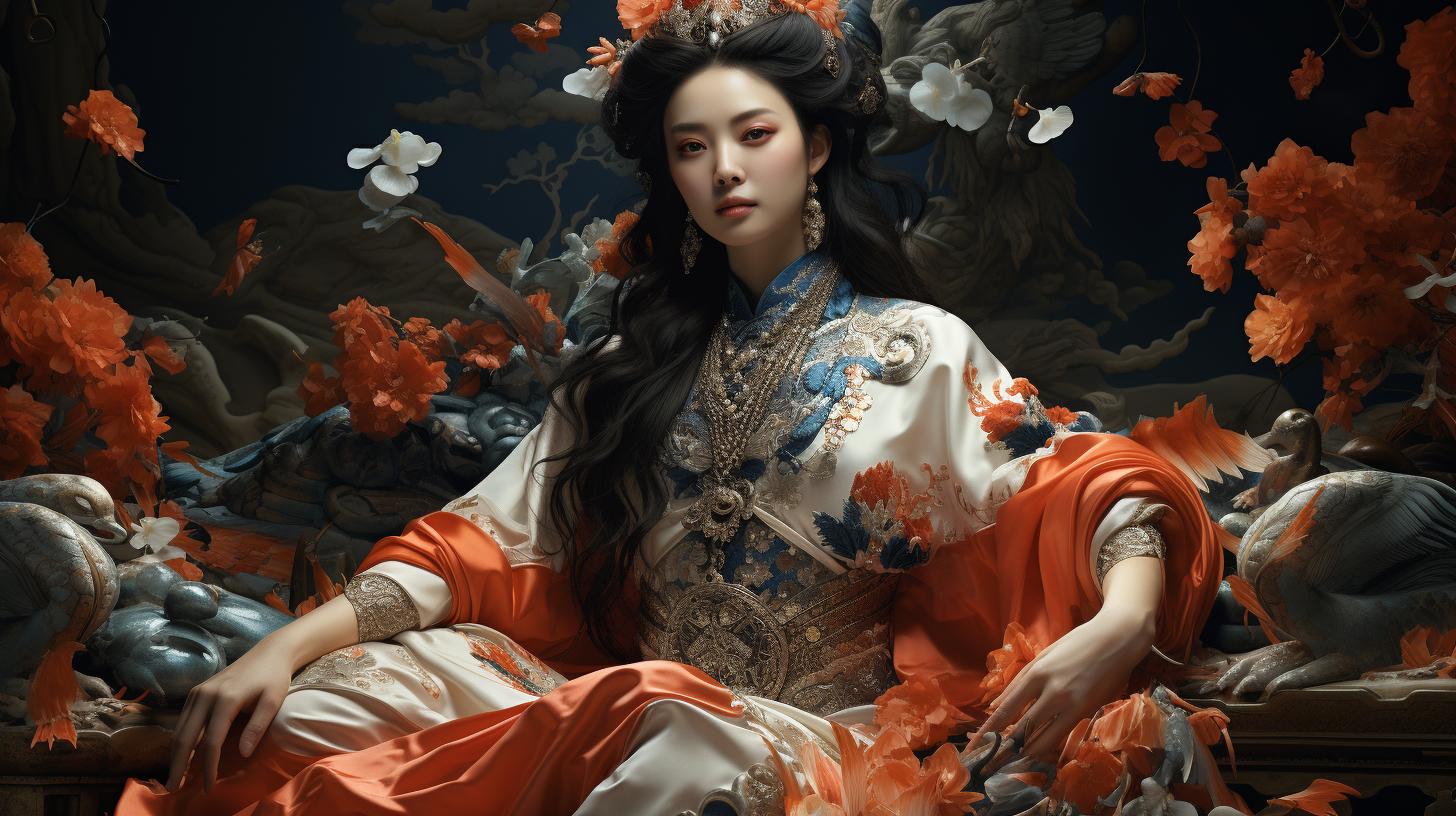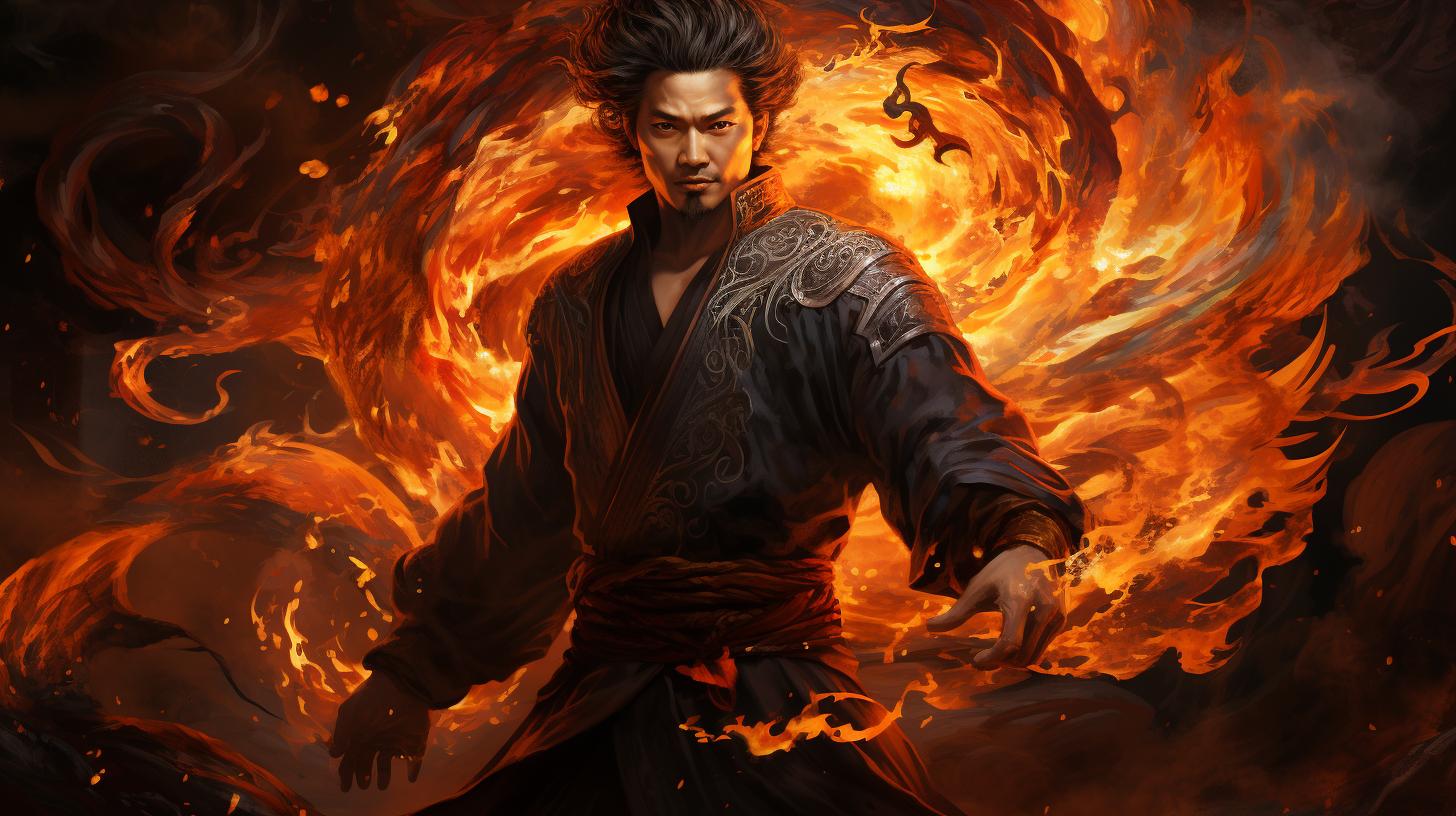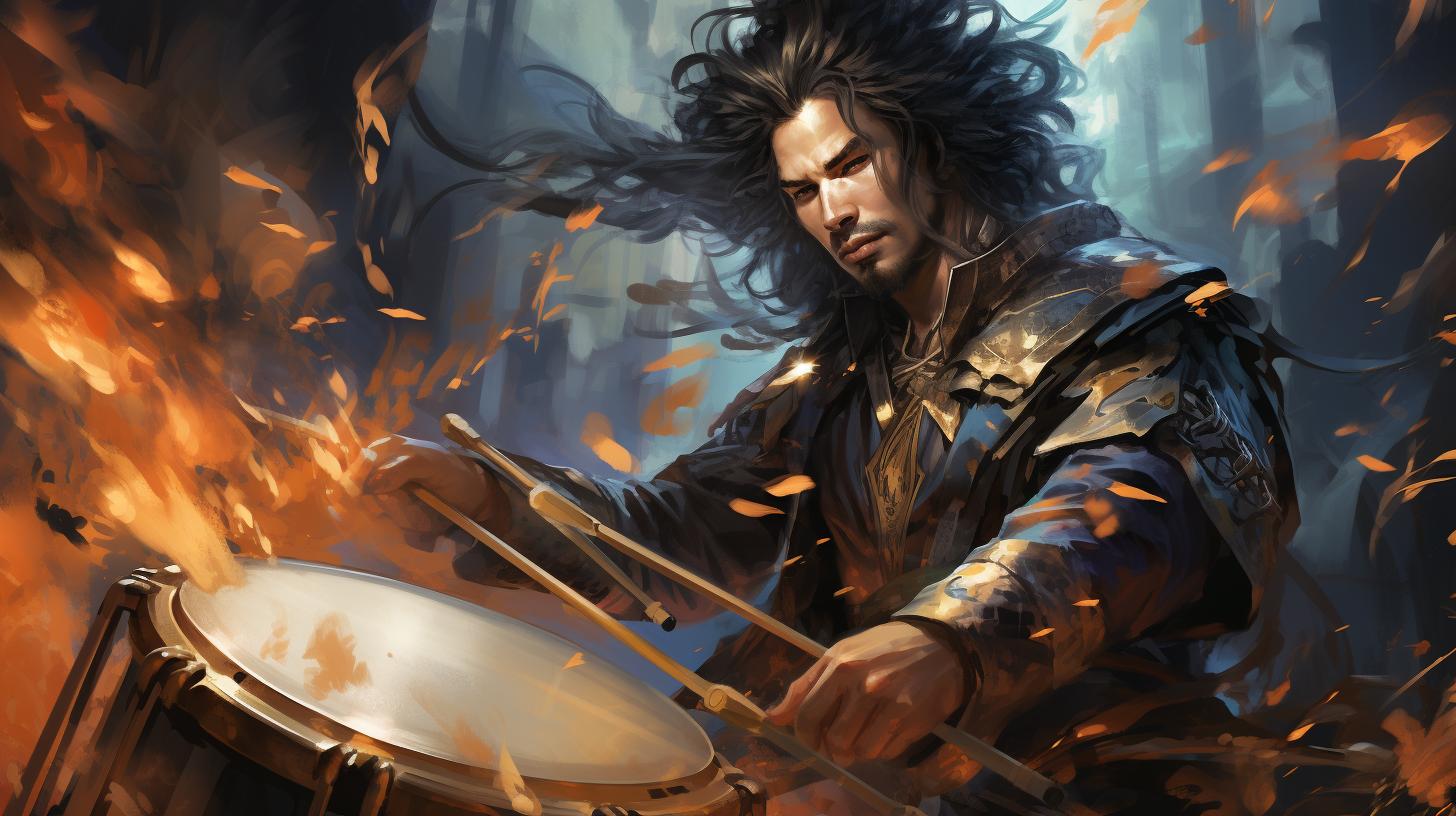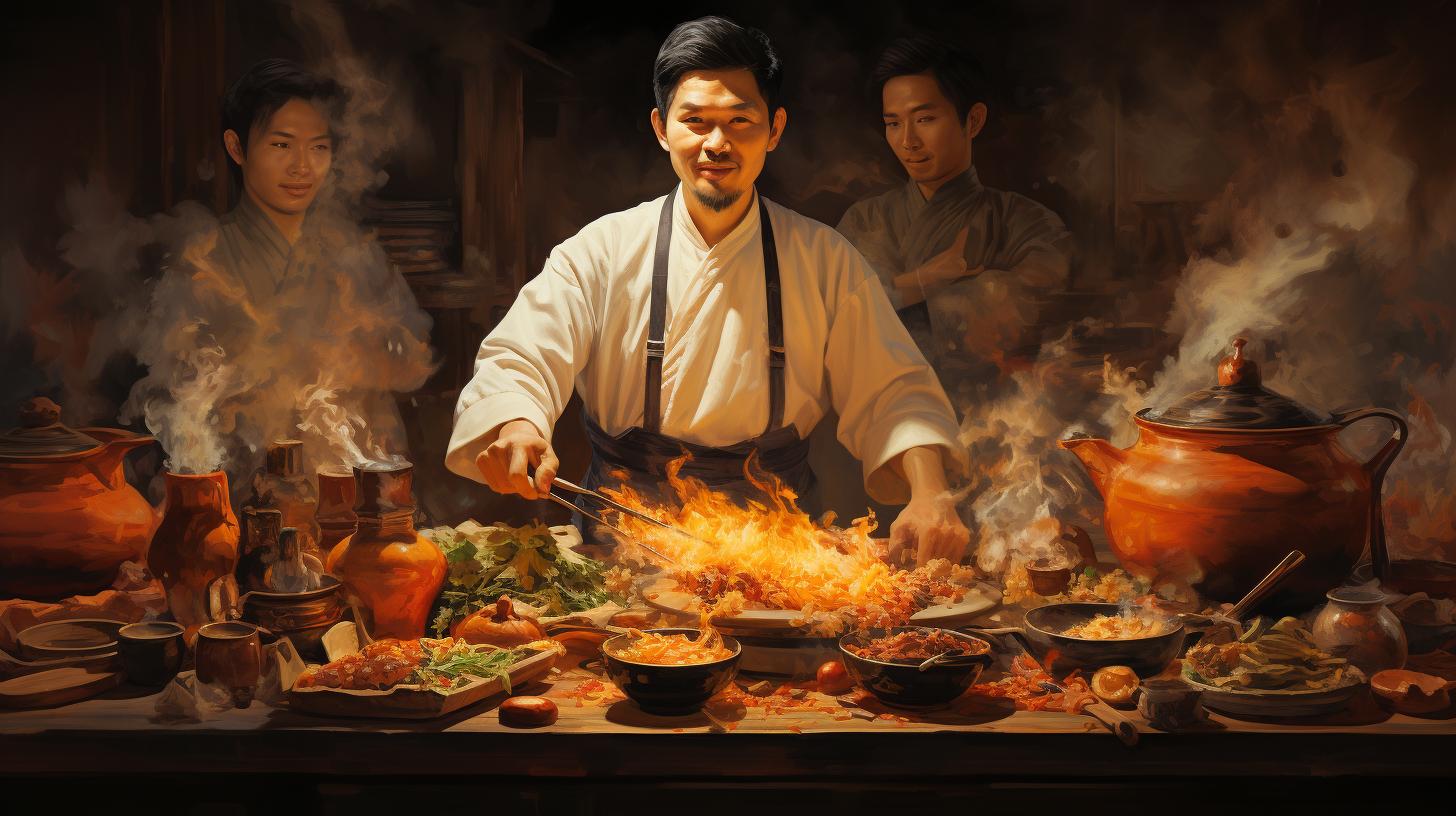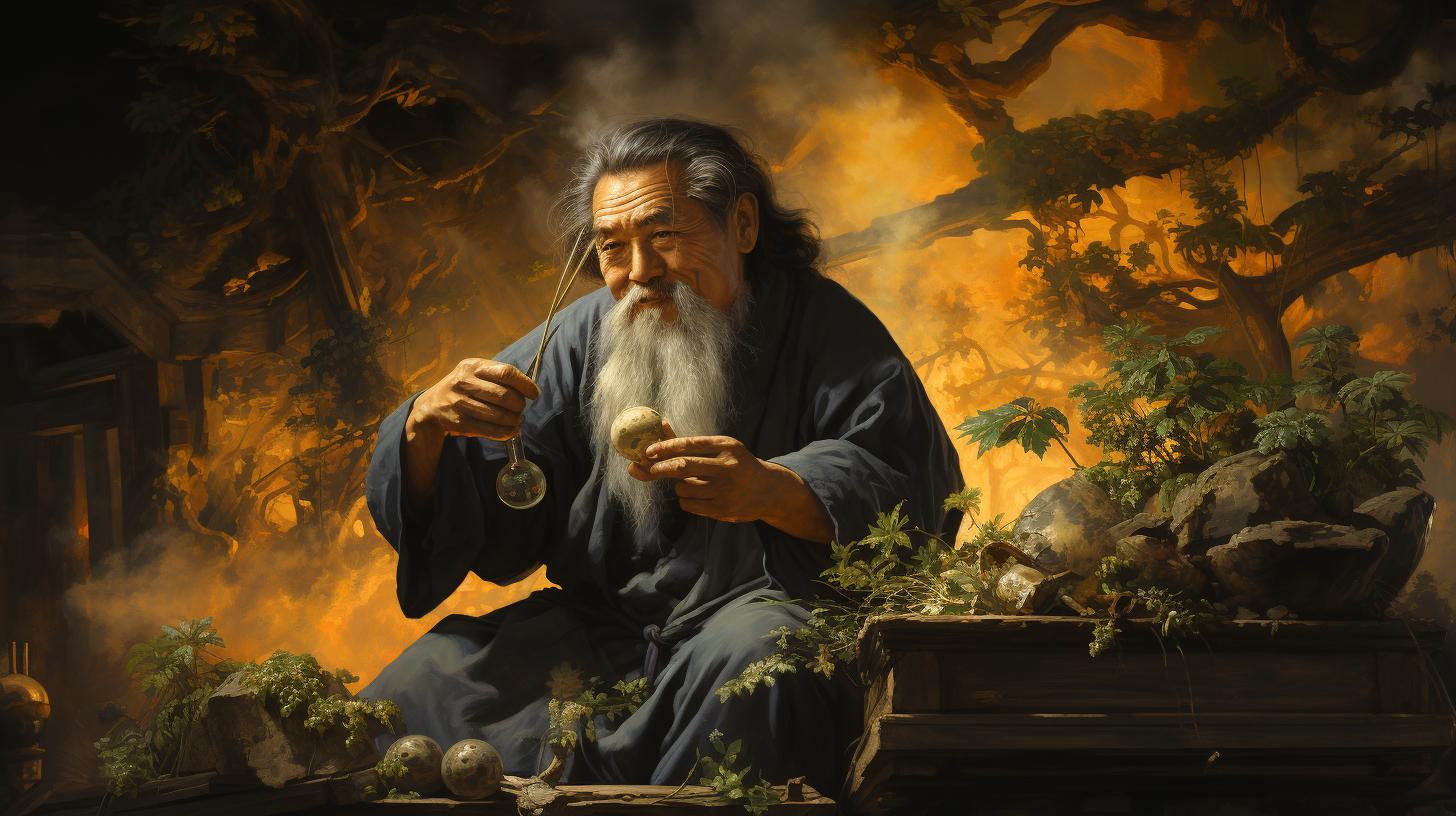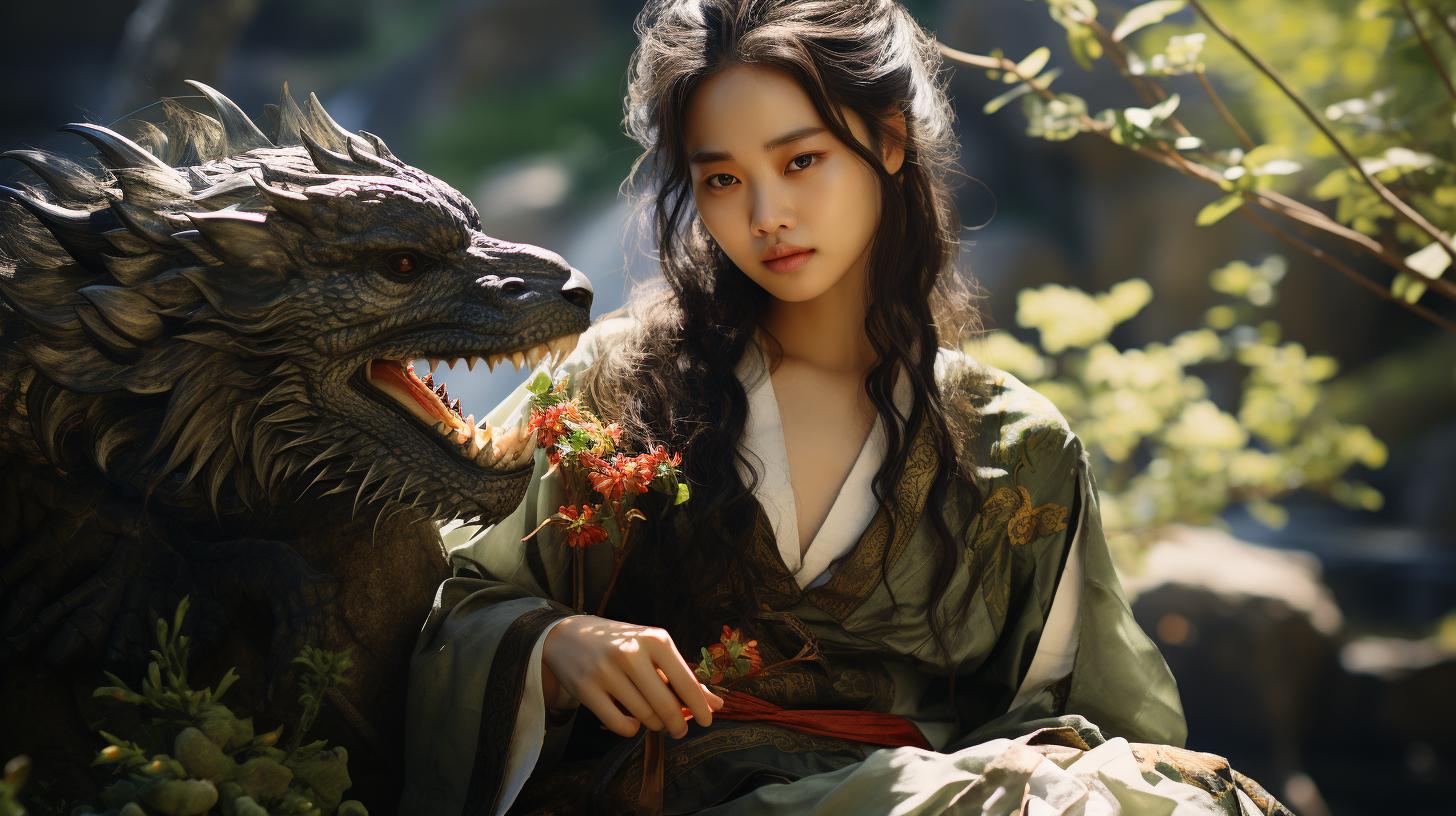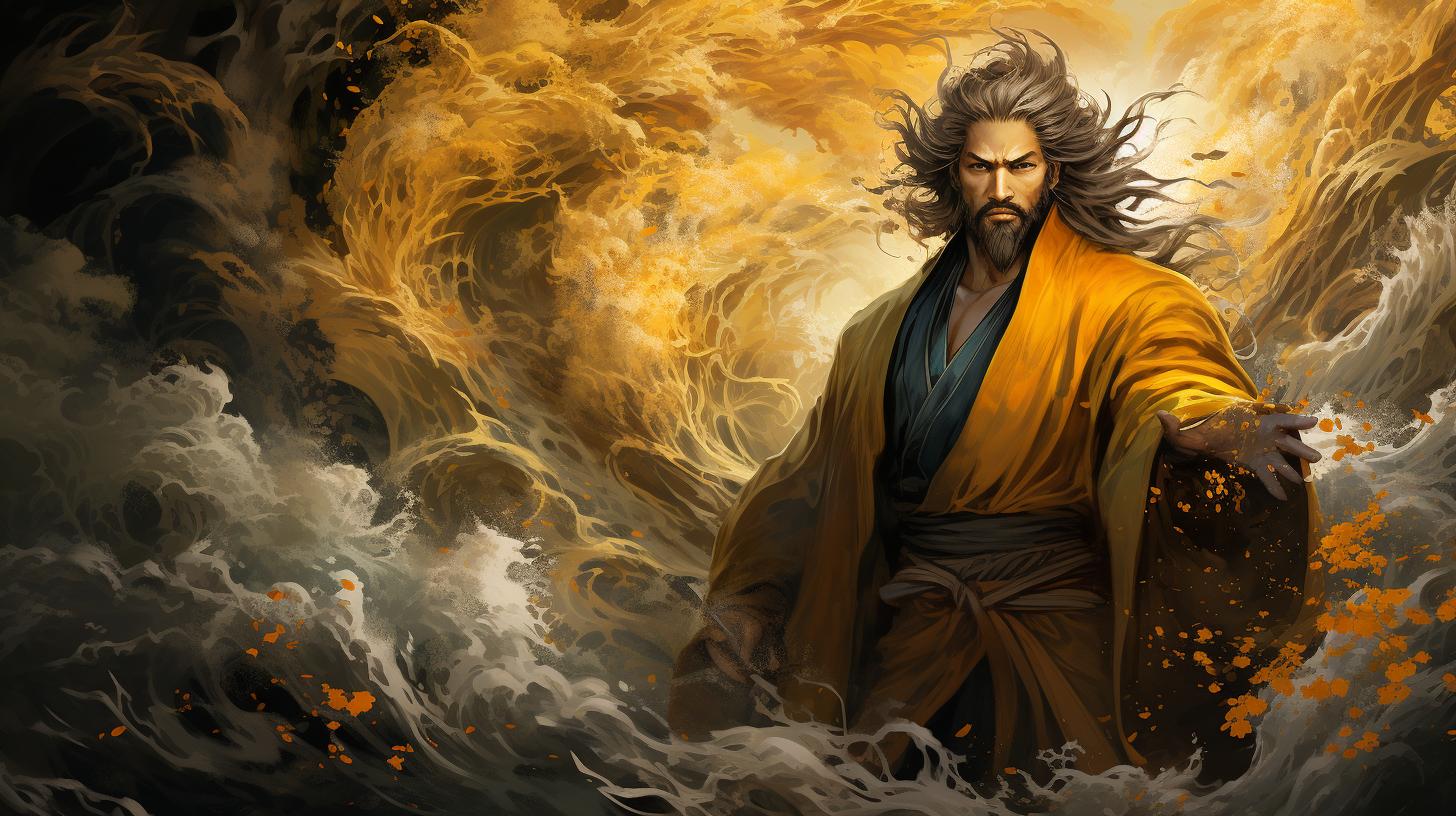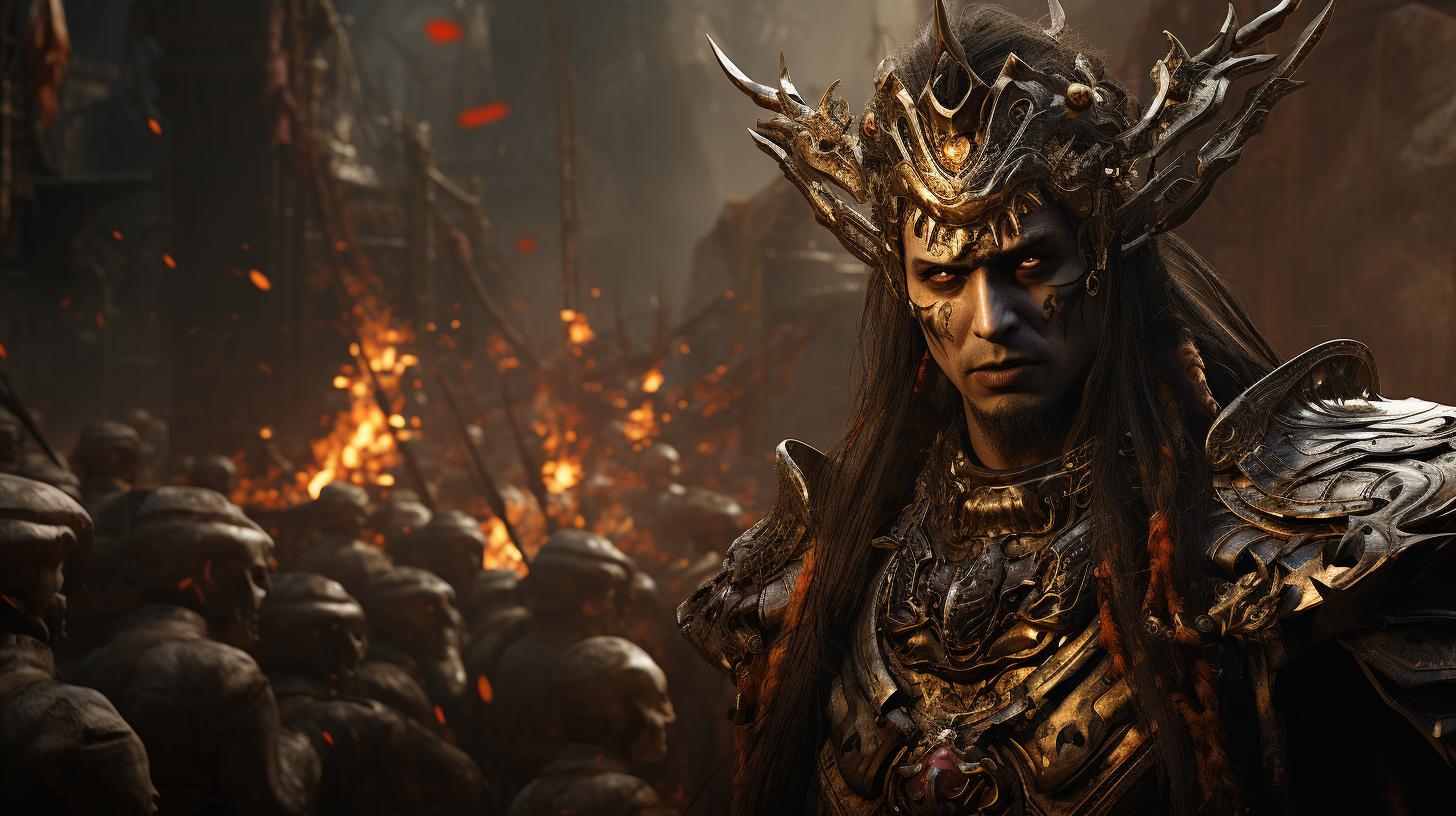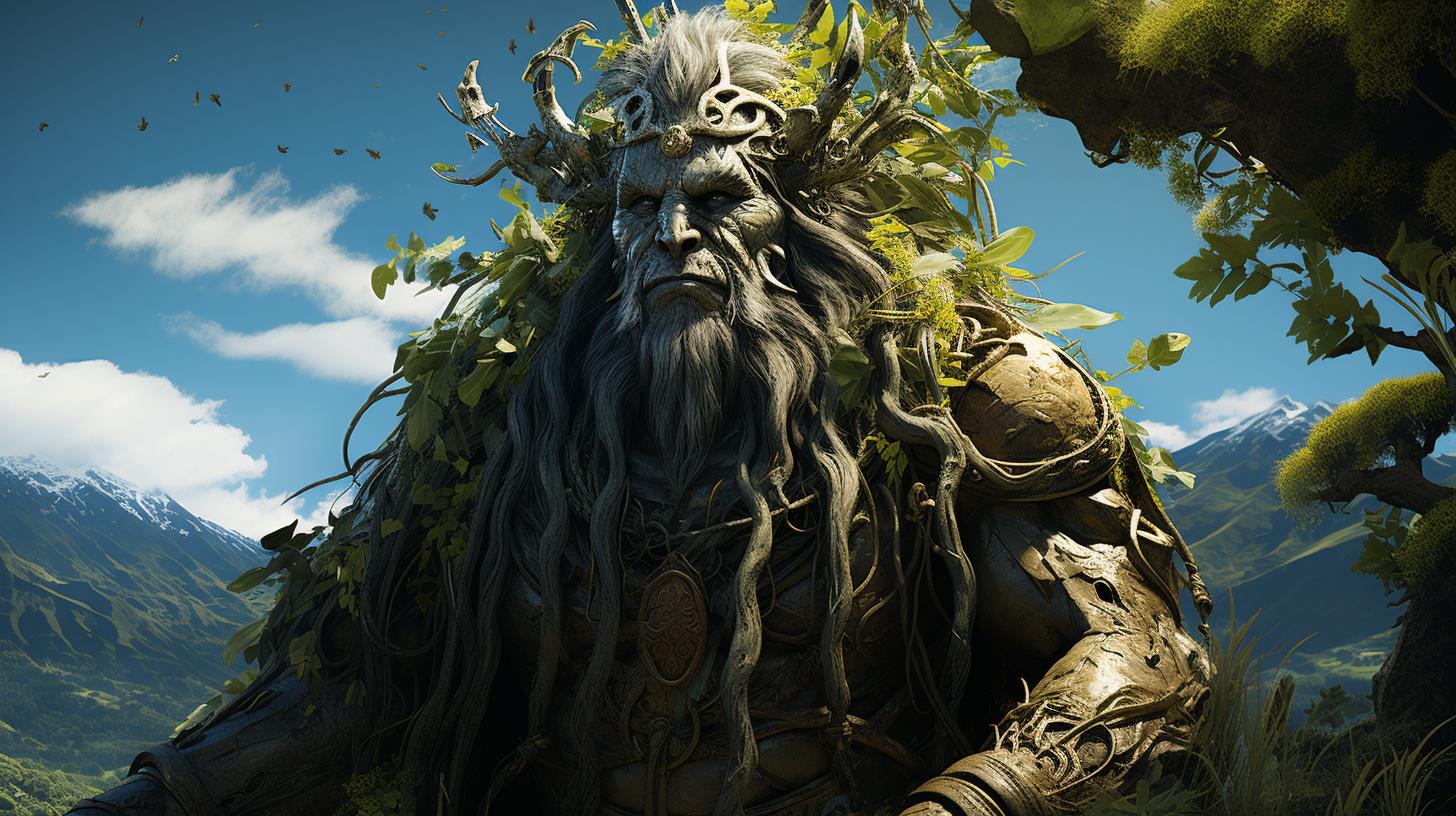‘Xiwangmu Goddess: Exploring the Ancient Chinese Deity in Taoist Mythology’
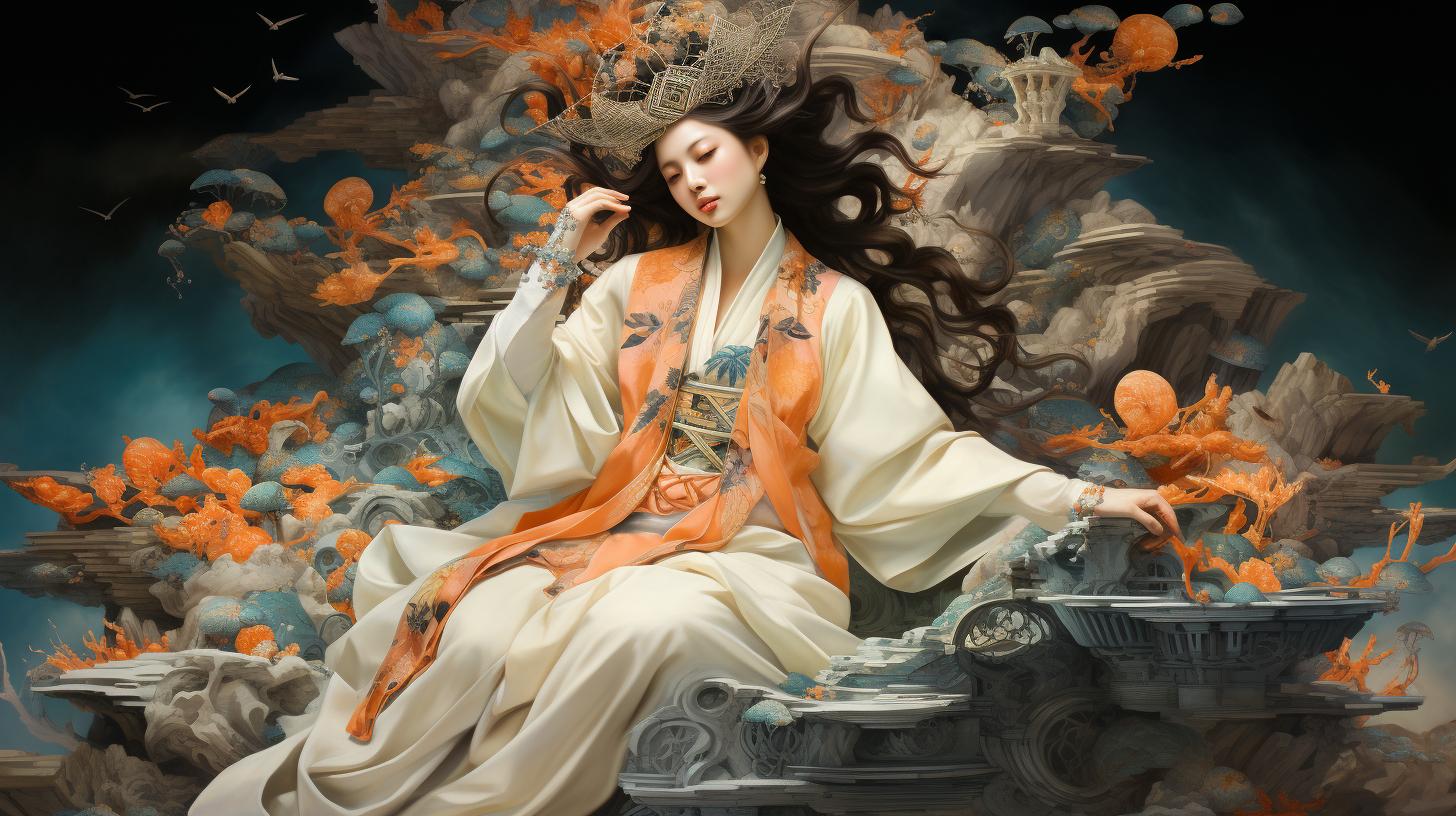
Xiwangmu goddess is an ancient deity revered in Chinese religion and mythology. Originating during the Shang dynasty around 3300 years ago, she remains significant in Chinese culture and has influenced neighboring countries like Japan, Korea, and Vietnam.
Initially depicted as a fearsome figure with a human body, leopard tail, and tiger teeth, Xiwangmu later transformed into a benevolent deity known as the Queen Mother of the West. Residing in the Kunlun Mountains, she is associated with immortality through the magical peaches that grow in her paradise garden.
Xiwangmu controls cosmic forces and is worshiped as the Sovereign Mother of the West in contemporary sources.
Origins of Xiwangmu Goddess in Taoist Mythology
The origins of the Xiwangmu goddess can be traced back to ancient Chinese beliefs and practices that date back thousands of years. In this section, we will explore the historical background of the Xiwangmu goddess and the evolution of her mythological significance.
Ancient Chinese Beliefs and Practices
Ancient Chinese culture was rich in mythology and folklore, with a strong belief in the existence of divine beings who influenced various aspects of life. These beliefs emphasized the connection between humans and the spiritual realm, and the importance of honoring and appeasing the gods and goddesses through rituals and offerings.
In this context, the Xiwangmu goddess emerged as one of the most revered deities in Chinese mythology, symbolizing both power and benevolence. Her origins can be traced back to the Shang Dynasty, which existed approximately 3300 years ago.
Historical Background of the Xiwangmu Goddess
The historical background of the Xiwangmu goddess is closely tied to the development of Taoism, an indigenous Chinese religion that incorporates elements of philosophy and spirituality. Xiwangmu gained significant prominence during the Han Dynasty, when Taoism began to flourish and became a major religious force in China.
During this time, Xiwangmu’s mythology evolved, and she became associated with various symbolisms and roles within the Taoist pantheon. Her image transformed from a fearsome figure with a leopard tail and tiger teeth to that of a benevolent queen mother, ruling over the western realm.
Evolution of Xiwangmu’s Mythological Significance
Throughout Chinese history, the mythological significance of Xiwangmu continued to evolve. She became deeply intertwined with the concept of immortality and the pursuit of eternal life. Xiwangmu’s connection to the mythical Tree of Immortality and the peaches it bore, offering everlasting life, became a central theme in her mythology.
Over time, Xiwangmu’s influence expanded beyond China, reaching neighboring countries such as Japan, Korea, and Vietnam. In each culture, she acquired different names and was incorporated into their respective mythologies while maintaining her core attributes and significance as a powerful and revered deity.
As Xiwangmu’s mythology developed and spread, her role as a divine figure in Taoist mythology became firmly established. In the following sections, we will delve deeper into Xiwangmu’s appearance, symbolism, and the realm she is associated with, shedding light on the intriguing aspects of this ancient goddess.
Xiwangmu’s Appearance and Symbolism
Xiwangmu, the ancient Chinese deity, is renowned for her portrayal in various forms and her rich symbolism. Over time, her image has evolved, transitioning from a powerful and terrifying figure to a benevolent and revered deity known as the Queen Mother of the West.
The Powerful and Terrifying Form of Xiwangmu
In her earlier mentions, Xiwangmu was depicted as a figure with a human body, but with a leopard’s tail and tiger’s teeth, instilling awe and fear in those who worshipped her.
This portrayal reflected her power and dominance, showcasing her connection to the untamed forces of nature.
Transformation into the Benevolent Queen Mother
As time passed, Xiwangmu underwent a transformation, transitioning into a benevolent deity known as the Queen Mother of the West. This evolution demonstrated her mercy, compassion, and nurturing nature towards her worshippers.
She became a symbol of wisdom, guidance, and protection.
Representations and Symbols Associated with Xiwangmu
Xiwangmu is often represented as a regal figure, seated on mountains, holding a staff, and surrounded by mythical creatures. These representations highlight her authority, wisdom, and connection to the natural world.
She is associated with the secrets of immortality and is often depicted alongside the mythical tree of immortality, bearing peaches that grant eternal life.
Furthermore, Xiwangmu’s symbolism extends to her association with cosmic forces and celestial bodies.
She is believed to have control over time, space, and the constellation of the Great Bear (Ursa Major). This association underscores her role as a divine figure with immense power and influence over the universe.
The representations and symbols associated with Xiwangmu reflect the multifaceted nature of her character and the deep reverence held for her in Chinese mythology.
Xiwangmu’s Realm: Kunlun Mountains and the Paradise Palace
Xiwangmu, the ancient Chinese deity, is believed to reside in the majestic Kunlun Mountains, located in the western part of China.
These sacred mountains hold great significance in Taoist mythology, symbolizing a spiritual realm where Xiwangmu reigns. The Kunlun Mountains are revered as a mystical and divine place, embodying tranquility and harmony.
The Sacred Kunlun Mountains in Western China
The Kunlun Mountains are renowned for their profound spiritual energy and have been depicted as the dwelling place of Xiwangmu for centuries. These mountains tower over the surrounding landscapes, their magnificent peaks reaching towards the heavens.
The Kunlun Mountains are steeped in mythology and folklore, serving as a backdrop for various legends and tales.
The Paradise Palace: A Perfect Heavenly Abode
Within the mystical realm of the Kunlun Mountains lies the Paradise Palace, an ethereal abode known as a perfect haven. This celestial palace is believed to be the dwelling place of Xiwangmu, a sanctuary of unparalleled beauty and tranquility.
The Paradise Palace is often described as an otherworldly paradise, offering a glimpse into a realm beyond the mortal world.
The Mythical Tree of Immortality and Its Peaches
Deep within the Paradise Palace grows a mythical tree, bearing the legendary peaches of immortality. This extraordinary tree only blooms once every 3000 years, producing ripe peaches that grant eternal life to those fortunate enough to consume them.
These peaches, symbolizing immortality and rejuvenation, hold a mystical allure, and their significance plays a vital role in Xiwangmu’s mythology.
Xiwangmu’s Powers and Associations
Xiwangmu, the ancient Chinese goddess, possesses remarkable powers and is associated with various aspects of the cosmos. Let’s delve into her dominion over cosmic forces, her influence on natural disasters and repentance, and her connection with growth energies and transcendentals.
Control over Cosmic Forces: Time, Space, and Constellations
As an important deity in Taoist mythology, Xiwangmu wields immense power over the cosmic realm. She is believed to have control over time, space, and even celestial bodies such as the constellation of the Big Dipper.
Through her dominion over these cosmic forces, Xiwangmu exerts influence on the natural order of the universe.
Influence on Natural Disasters and Repentance
Although associated with benevolence in her later form, Xiwangmu’s earlier representations depict her capacity to cause natural disasters. In certain mythology, she is attributed the power to cause floods, famines, and outbreaks of pests.
However, Xiwangmu also exhibits remorse for her actions, highlighting the concept of repentance and transformation in her character.
Xiwangmu’s Connection with Growth Energies and Transcendentals
Beyond her role in controlling cosmic forces, Xiwangmu is intimately connected with growth energies and transcendentals. She embodies the nurturing and abundant aspects of nature, fostering growth and prosperity. The goddess is often depicted surrounded by various spirits and mythical creatures, symbolizing her connection to the mysteries of the universe and the pursuit of spiritual enlightenment.
As we explore Xiwangmu’s powers and associations, it becomes evident that her significance extends beyond her divine control. She represents the delicate balance between power and benevolence, omnipotence and remorse. Understanding her multifaceted character is essential for comprehending her crucial role in Chinese mythology and religious practices.
Xiwangmu Goddess in Different Asian Cultures
When examining the worship of Xiwangmu goddess, it becomes apparent that her presence extends beyond China. Various countries in Asia have their own names for her and unique practices associated with her veneration.
Variations in Name and Worship Across Asian Countries
Throughout Asia, Xiwangmu goddess is known by different names, reflecting the cultural and linguistic diversity of the region. In Japan, she is revered as Seiōbo, while in Korea, she is worshipped as Seowangmo.
Vietnam recognizes her as Tây Vương Mẫu. Despite these variations, the reverence and importance attributed to Xiwangmu remain consistent across different cultures.
Each country has its own religious customs and rituals associated with the worship of Xiwangmu.
While some practices may share similarities with Chinese Taoism, they also incorporate unique elements specific to their respective cultures. It is fascinating to observe how the goddess’s influence has permeated different societies, adapting to local beliefs and practices.
Xiwangmu’s Influence on Japanese, Korean, and Vietnamese Mythology
The influence of Xiwangmu extends beyond her name and worship. In Japanese mythology, Seiōbo is considered a goddess of good fortune and beauty. She is often depicted as a kind and nurturing figure, associated with agriculture and prosperity.
Her connection to the pursuit of immortality is also evident.
In Korean mythology, Seowangmo is celebrated as a goddess associated with birth and fertility. She is believed to bring blessings to women during pregnancy and childbirth.
Seowangmo’s role as a protector and nurturer is highly regarded in Korean society.
Tây Vương Mẫu in Vietnamese mythology is revered as a goddess of fertility, protection, and medicine. She is believed to have the power to grant good health and safeguard individuals against illness and misfortune.
Tây Vương Mẫu’s influence stretches beyond mythology and interweaves with traditional healing practices in Vietnamese culture.
The significance of Xiwangmu in different Asian cultures highlights her enduring appeal and impact on various belief systems and traditions.
Despite geographical and cultural differences, her presence remains fundamental, influencing the lives of people across the region.
Unraveling the Secrets of Immortality in Xiwangmu’s Lore
Unraveling the Secrets of Immortality in Xiwangmu’s Lore delves into the fascinating concept of eternal life and its symbolism within Xiwangmu’s mythology.
The Allure of Immortality and Its Symbolism
The allure of immortality has captivated human imagination throughout history, and Xiwangmu’s lore is no exception. Immortality represents the ultimate quest for many, a desire to transcend the boundaries of mortality and achieve eternity.
Within the context of Xiwangmu’s mythos, immortality is intertwined with the concept of spiritual enlightenment, growth, and transcendence.
In ancient Chinese beliefs, immortality was not just a physical state but also a spiritual one, representing purity, wisdom, and deep understanding of the cosmic forces at play.
It symbolizes liberation from the cycle of birth and death and unlocking the mysteries of the universe.
Xiwangmu’s Role in the Pursuit of Immortality
Xiwangmu plays a significant role in the pursuit of immortality, both as a guardian and a provider. She is intimately connected to the mythical tree that bears the peaches of immortality in her paradise palace.
These peaches are believed to grant everlasting life to those fortunate enough to consume them.
Preservation of Immortality
Guardian of Spiritual Growth
Symbolic Teachings
Xiwangmu is entrusted with the sacred duty of preserving the immortality-bestowing peaches. The tree’s fruit takes an incredible 3,000 years to ripen, ensuring only the most deserving and patient individuals can access its life-giving properties.
The significance of this long maturation period represents the importance of patience, discipline, and harmony with nature in the journey towards immortality.
Xiwangmu’s role extends beyond the physical manifestation of the peaches. As the Queen Mother of the West, she guides and empowers those seeking spiritual growth and enlightenment. She imparts wisdom, teaches the ways of cosmic harmony, and encourages individuals to embark on a path of self-discovery and inner transformation.
Xiwangmu’s mythology offers valuable symbolic teachings regarding the pursuit of immortality. It emphasizes the importance of balance, self-discipline, and spiritual enlightenment as the keys to unlocking the doors of eternal life.
The journey towards immortality, according to Xiwangmu’s lore, requires not only the consumption of physical peaches but also the cultivation of inner virtues and enlightenment.
In summary, exploring the secrets of immortality within Xiwangmu’s lore provides profound insights into the human pursuit of eternal life.
It highlights the symbolic significance of immortality, the role of Xiwangmu as both guardian and guide, and the teachings encapsulated within this timeless mythological narrative, resonating with the eternal desire for transcendence.
Exploring the Significance of Xiwangmu in Contemporary Taoism
Xiwangmu’s Continued Worship and Devotion
Within the realm of contemporary Taoism, Xiwangmu maintains a prominent position as a revered deity. Her worship and devotion persist among Taoist communities, both in China and abroad. Followers continue to honor Xiwangmu through rituals, prayers, and offerings, expressing their deep reverence for her divine power and influence.
Devotees of Xiwangmu seek her blessings for various aspects of life, including health, prosperity, and spiritual growth. They visit temples dedicated to her, seeking solace and guidance in their journeys. The steadfast devotion to Xiwangmu reflects the enduring significance of her role in Taoist belief systems and the reverence she commands among her followers.
Xiwangmu in Modern Taoist Rituals and Practices
In modern Taoist rituals and practices, Xiwangmu holds a prominent place. Her presence and influence are invoked during important ceremonies and festivals. Taoist priests and practitioners call upon her to bestow blessings, offer protection, and ensure the harmonious flow of energies.
During these rituals, participants may make offerings of flowers, incense, or food to symbolize their devotion and seek Xiwangmu’s favor. Songs and chants sung in her honor fill the air, creating an atmosphere of spiritual connection and reverence.
Furthermore, Xiwangmu is often depicted in Taoist art and iconography. Her image serves as a powerful symbol of divine feminine energy, wisdom, and grace. The representation of Xiwangmu in Taoist rituals and art continues to play a vital role in connecting believers with her essence and further deepening their spiritual connection with the deity.
Through continued worship and integration into modern Taoist practices, Xiwangmu maintains her significance as a revered and influential goddess in contemporary times.

